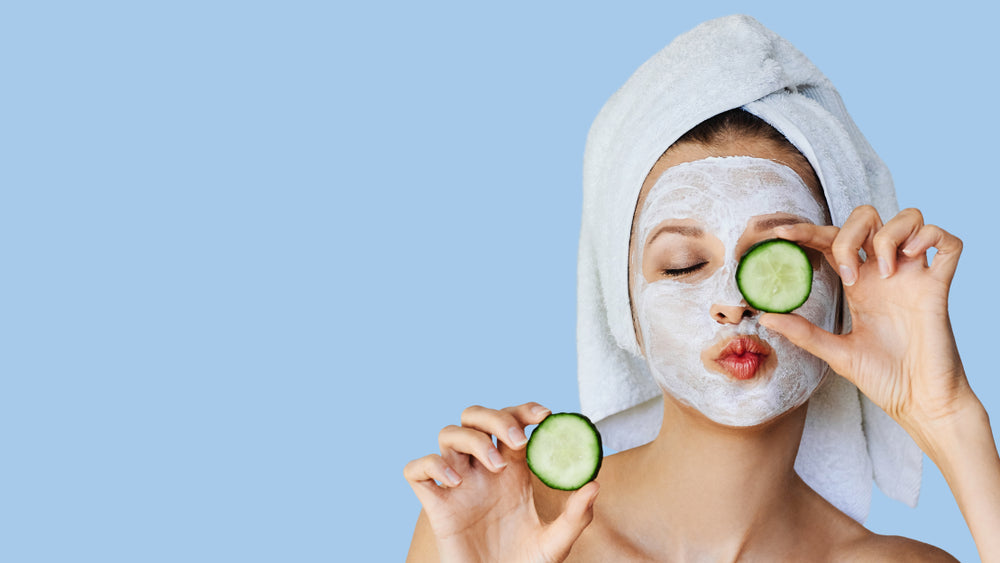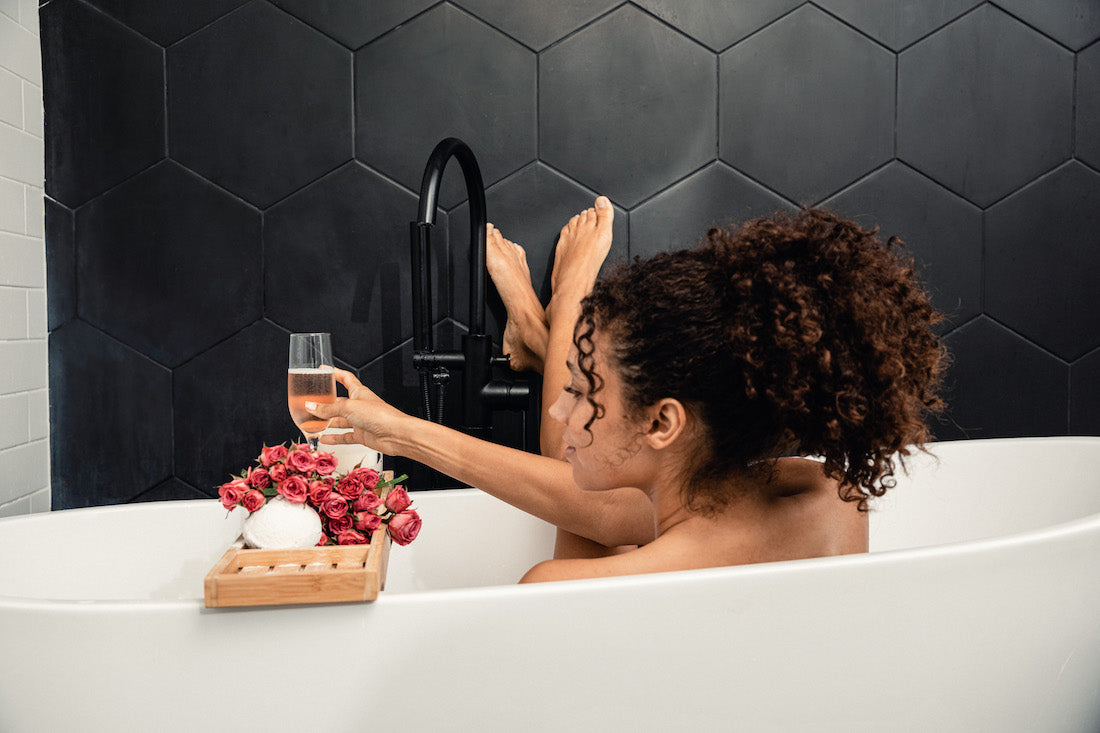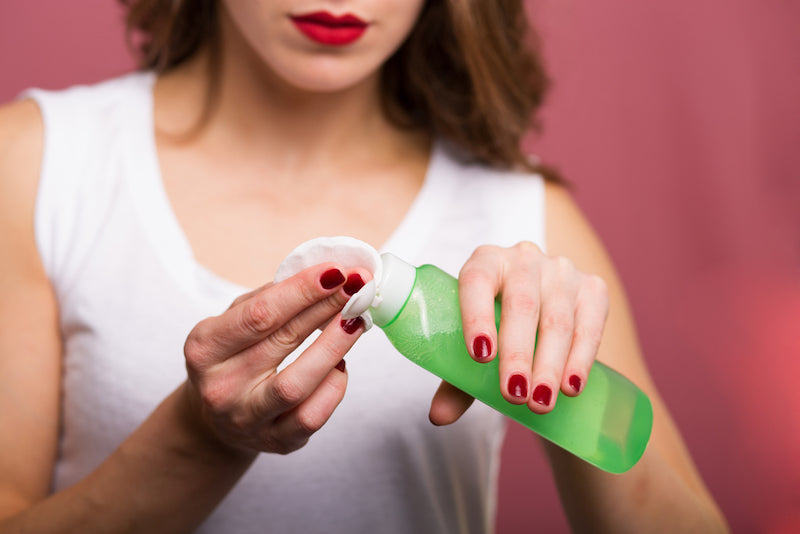
Kaolin Clay vs. Bentonite Clay vs. Activated Charcoal - An In-Depth Comparison
Different types of clay have been used as skincare masks and cleansers for centuries, but not all clay is created equally. Nor do they offer the same kinds of benefits to your skin. To help you better understand your options, we compare three common types, kaolin clay, bentonite clay, and activated charcoal.
Overview of kaolin clay: One of the mildest types of clay, kaolin clay is made of a mineral called kaolinite. This soft white or pink clay consists of tiny crystals, including silica and quartz which contain strong detoxifying benefits.
Overview of bentonite clay: Known in various cultures as the "healing clay," bentonite clay naturally improves the appearance and texture of the skin and detoxifies the body. Also called montmorillonite clay, this natural product is made from volcanic ash.
Activated charcoal: Well-known for its ability to soak up toxins, activated charcoal is a celebrated skincare ingredient used to shrink pores, lessen acne, and balance out oily skin.
When comparing kaolin clay vs bentonite clay or even adding activated charcoal into the mix, similarties and differences become evident. Luckily, with some products featuring all three, you don't need to necessary choose one above the others.
| Kaolin Clay Key Benefits | Bentonite Clay Key Benefits | Activated Charcoal Key Benefits |
| Reduces oil | Removes toxins | Deep cleanse |
| Cleanses pores | Anti-inflammatory | Gentle |
| Heals skin & reduces redness | Anti-bacterial | Reduces the size of pores |
| Ideal for sensitive skin | Great for pain relief & scarring | Ideal for oily skin or acne issues |
Different types of clay have been used as skincare masks and cleansers for centuries, but not all clay is created equally. Nor do they offer the same kinds of benefits to your skin. To help you better understand your options, we compare three common types, kaolin clay, bentonite clay, and activated charcoal.
Overview of kaolin clay: One of the mildest types of clay, kaolin clay is made of a mineral called kaolinite. This soft white or pink clay consists of tiny crystals, including silica and quartz which contain strong detoxifying benefits.
Overview of bentonite clay: Known in various cultures as the "healing clay," bentonite clay naturally improves the appearance and texture of the skin and detoxifies the body. Also called montmorillonite clay, this natural product is made from volcanic ash.
Activated charcoal: Well-known for its ability to soak up toxins, activated charcoal is a celebrated skincare ingredient used to shrink pores, lessen acne, and balance out oily skin.
When comparing kaolin clay vs bentonite clay or even adding activated charcoal into the mix, there are many similarities between all three. Despite the commonalities, there are also differences in the best use for each.
This trifecta of natural ingredients is a recipe for the perfect skincare solution.
|
Kaolin Clay |
Bentonite Clay |
Activated Charcoal |
|
Key Benefits: |
Key Benefits: |
Key Benefits: |
|
Reduces oil |
Removes toxins |
Deep cleans skin |
|
Cleanses pores |
Anti-inflammatory |
Gentle |
|
Heals skin & reduces redness |
Anti-bacterial |
Reduces the size of pores |
|
Ideal for sensitive skin |
Great for pain relief & scaring |
Ideal for oily skin or acne issues |
Get to Know Kaolin Clay
Suited for all skin types, kaolin clay is chocked full of nutrients and minerals, making it a key ingredient for a growing number of skincare products. Also called “white clay,” this is one of the gentlest clays available for the skin. Its natural mineral content allows it to detoxify skin without causing drying.
In addition to tiny mineral crystals like quartz, feldspar, and silica, kaolin clay is abundant in magnesium, zinc, and copper. Kaolin clay reduces inflammation and absorbs excess oil and dirt from the skin, helping clean out pores and avoid acne breakouts.
Kaolin clay can also help tighten and tone skin, preventing signs of aging while reducing redness and dark spots.
Get to Know Bentonite Clay
The formation of bentonite involves the change of volcanic glass to clay minerals. Primarily manufactured in the United States, most bentonite clay comes from the volcano-rich area of Fort Benton, Montana.
Also called montmorillonite clay, bentonite clay is known for being a cost-effective way to detoxify the skin and body. Its anti-bacterial properties are known for fighting off bacteria and contains abundant minerals like magnesium, calcium, copper, iron, and potassium.
Bentonite clay offers nourishing effects by balancing oil production in the skin, clearing out clogged pores, and removing dead skin cells, making it obvious why this ingredient is included in exfoliants and skin masks.
Get to Know Activated Coal
There’s a reason activated charcoal is the new fad in skincare. It has been used for centuries for its antioxidant and toxin-absorbing qualities but has achieved recent popularity.
Activated charcoal is a black powder that binds to the dirt and chemicals inside your skin's pores. This ingredient leaves the skin feeling smooth and clear by absorbing excess oil and dirt, while also acting as a gentle peel.
Kaolin Clay vs. Bentonite Clay vs. Activated Charcoal - How They Compare
Main Benefits
Kaolin clay - Kaolin clay is known for being the softest clay, making it the perfect choice for dry or sensitive skin. Don't let its gentleness fool you; kaolin clay has oil-absorbing qualities that match up to other options but leave your skin clean with the added benefit of increased moisture.
Bentonite clay - Removing impurities from the skin’s surface and calming inflammation are specialties of bentonite clay. This ingredient is a potent detoxifier while also soothing skin and reducing redness.
Activated Charcoal - When it comes to activated charcoal, its fame is based on the ability to soak up and bind excess oil in the skin. By removing impurities from your skin, activated charcoal can gently remove blackheads, pulling out dirt that clogs pores and prevents acne breakouts.
Absorption
Bentonite clay exhibits more powerful absorption properties than kaolin clay. This type of clay is believed to absorb more than its body mass in water, making it an excellent choice for people with extremely oily skin.
Gentleness
Kaolin clay is known for being extremely mild, with a pH balance of 5.5, which is close to the skin's natural pH. Bentonite clay has a pH of 8.5, causing it to help open the skin's pores and making it slightly less gentle than kaolin clay.
If you are comparing the gentleness of bentonite clay vs activated charcoal, they make a good pair instead of just choosing one. Activated charcoal is excellent for all skin types.
Overall feel
Kaolin clay is known for its fine powdered, soft quality. Packed with minerals and detoxifying ingredients, this white clay is gentler on the skin than other options.
When comparing bentonite clay vs activated charcoal, these ingredients feel entirely different on your skin.
Bentonite clay feels heavier on the skin and dries into a hard texture. Activated charcoal, on the other hand, has a softer feel and is less dense.

By Emily Wegener
With a unique background as an Integrative Nutrition Health Coach, Masters Degree in Teaching and experience in Psychology, Emily spends much of her time researching and trying out new holistic healing modalities.


